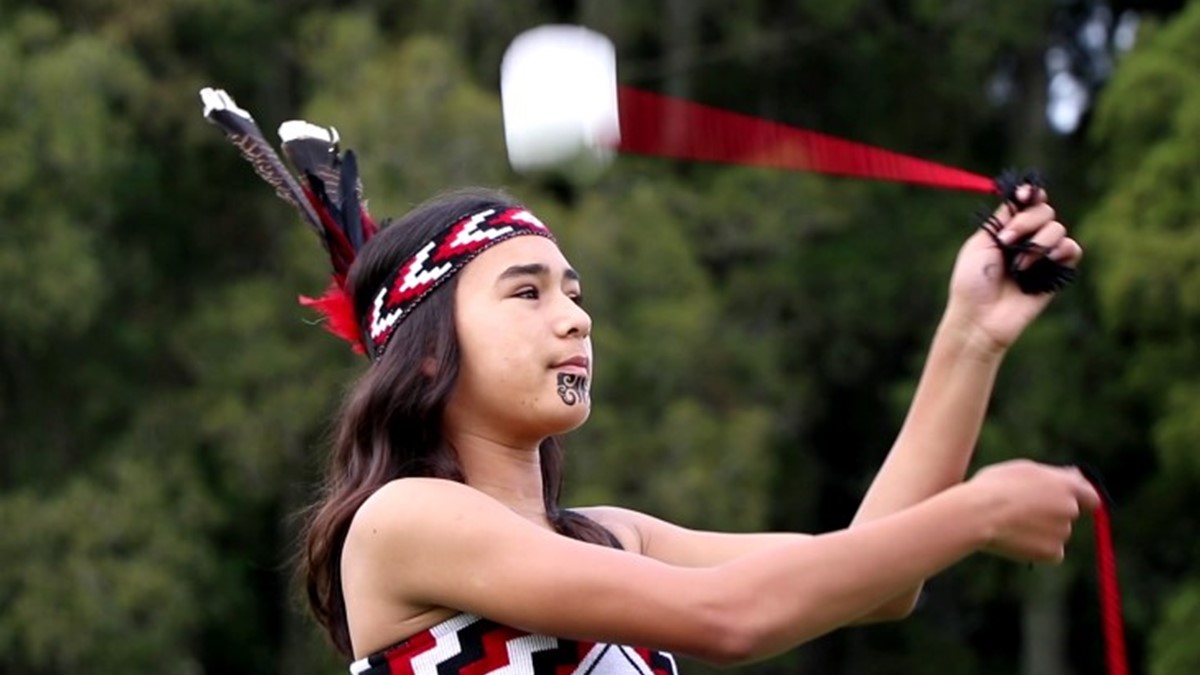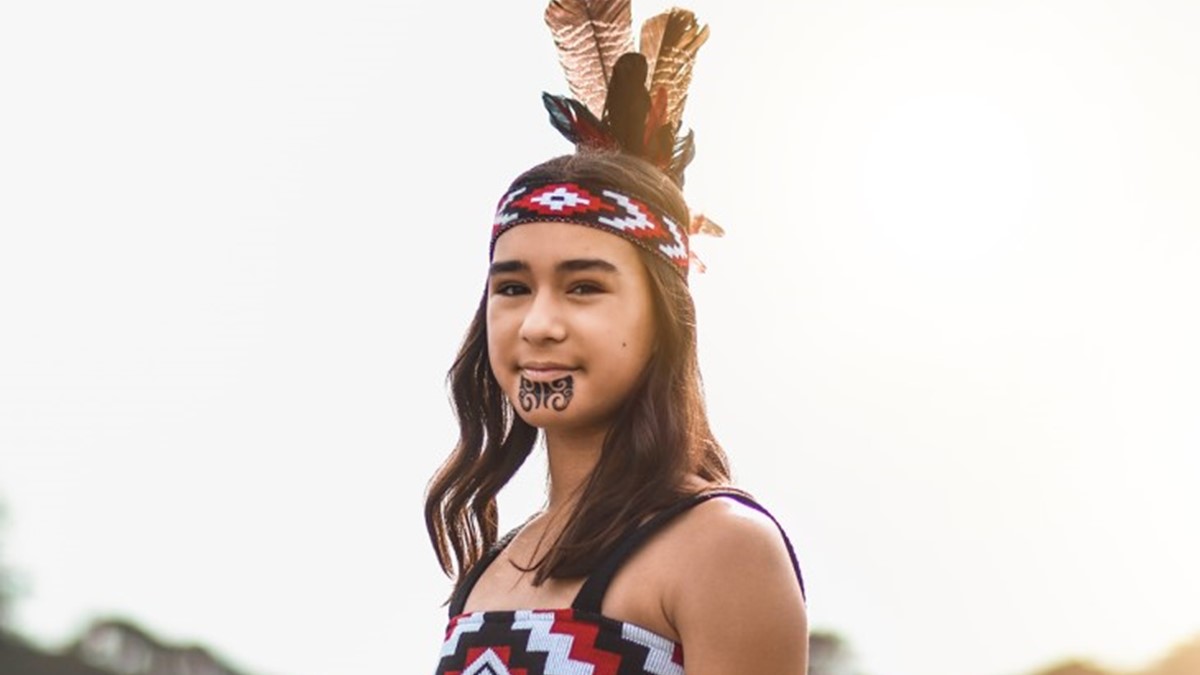Picture the scene. It's the school holidays. Harper is seven years old and staying with her nan. She's crazy about gymnastics, always doing cartwheels and stuff. Aunty comes to visit, bringing lunch. Wanting so much to impress Aunty, Harper does a backbend.
And her life begins to change.
At first, her back is really sore. Aunty is comforting her while she lies on the sofa, saying she'll be OK. But when Harper gets up for a glass of water from the kitchen, her legs give way. The glass shatters on the floor.
Harper Heta remembers the car ride from her nan's to Kaitaia Hospital, and how the nurse put needles in her – she doesn't like needles - and the helicopter flight to Auckland's Starship Hospital.
Five years on, her mother Lara, still gets emotional when remembering that day.
She had just happened to phone nan for a chat. She could hear Harper in the background. “I’d never, ever heard her scream like that before.”
Lara didn't believe her son, who was at nan's too, when he said Harper had broken her back. She felt reassured that their aunty was going to calm a distressed Harper. And she spoke to Nan, telling her to take Harper to the doctor. "That's when she said to me: 'She can't feel her legs'."
“In that moment, we didn’t know what was going to happen. We had no idea she would become paraplegic.”
Lara takes a deep breath, holds back the tears, before recounting how she and Hayden, Harper's father, met Harper off the helicopter in Auckland.
"It was pretty scary. In that moment, we didn't know what was going to happen. We had no idea she would become paraplegic."
Building confidence from her wheelchair
Five weeks in hospital was followed by three months at a children's rehabilitation centre, learning how being paraplegic changes your life.
Now she's 12 years old, Harper is on to her seventh wheelchair, and is already ticking off her life goals.
"My shoulders ached a lot when I first started pushing my wheelchair, but then I had physio and everything, and it helped me a lot, to gain strength in my arms and my shoulders to help push myself. And then I was off. It was great!" Harper says at her home in Kaukapakapa, about 50km northwest of Auckland.
And she hasn't stopped since.
She's one of the leaders at her school's kapa haka rōpū. She was the star performer at this year's Attitude Awards, dancing with others in the opening performance of the nationally televised event celebrating the achievements and successes of New Zealanders living with disabilities. She's been interviewed by children's news site Kea Kids and appeared on TV. And like a typical 12-year-old, she loves hanging out with her friends, and biking, thanks to an attachment that turns her wheelchair into a three-wheeled bike.
"I really enjoy kapa haka because I love singing and I love the arm movements and I like being included a lot.
"And I think being in kapa haka has given me a lot more confidence. We've created, like, a whānau, being in the group. I've gained so much more friendships from the group, and they're all like really nice to me, and we all support each other."
It's also helping her connect with her Māori roots, says Lara. "She may not understand everything she does because she's only 12, but I know she feels it. And it's really cool to watch."

“Justine's been a big help. She’s definitely one of my idols.”
But Harper hasn't always been so positive about her life after the injury.
"I've definitely had times when I was really down," she says. Like when she was about 10, she felt sad she couldn't play the sports she really wanted to. But then her mindset changed, becoming more positive.
ACC supports Harper with physiotherapy for her physical needs, and visits to a psychologist to help with her emotional needs. The family home has also been modified, so that Harper has more independence, including showering independently, making her own snacks, and having access to her siblings’ rooms.
And her ACC Recovery Partner, Justine, understands Harper's unique needs better than most.
Justine also has paraplegia and uses a wheelchair. She was a competitive gymnast when she was in a car accident, aged 8, injuring her back.
"Justine's been a big help. She's definitely one of my idols, she's definitely someone I can look up to," says Harper.
Lara echoes her support of Justine. "We met her at the rehab facility, and we were just new to all of this, so we don't know what's going on. And she was just really relatable, to me, to Harper, to the situation. And she's been hugely inspiring."
She adds: "Justine has been a part of Harper's whole journey, in terms of equipment, starting new sporting activities, adventures - because when you become a person in a wheelchair, life looks a little bit different."
Justine remembers that first meeting with Lara, listening to her concerns.
"I remember telling Lara there was no need to wrap Harper in cotton wool, and to allow her to figure out life when she was ready to, to let her take risks, and to have the exact same expectations for her as she would for any one of her children. So that she'd grow up into a healthy individual with respect for herself."
'Don't waste your time'
Harper's outlook is simple: "Having a disability gives you the ability to see people for who they really are."
She's been in a wheelchair for almost half her life and has learned to cope with the challenges.
"My advice to anybody in the same situation as me, is definitely don't waste your time. I know that many people in a wheelchair do get a little depressed from their situation, but they don't realise that they can do a lot more if they have the right mindset."
Her mother says Harper has been like that since her injury. "She just wanted to get up, in the chair and just get around. It's a bit like how she is every day in life. Just gets up, moves forward and just gets on with life."
For Lara, the life-changing injury feels like 'a huge blessing'.
"Not the trauma side of it, but just so many blessings and positive circumstances and things have come from Harper being paraplegic.
"She is a pillar of light."

Lara, a mother of six, says: "Every new experience she is a part of enriches our life so much, and we probably wouldn't have gained all that enriching love because we would just be a normal family.
"We're a normal family, but we have a child in a wheelchair, and people do see that as a difference and sometimes it actually softens people towards us. And sometimes it makes people a little bit scared to talk to us, but I think it's really, really blessed our family in many ways."
It's taught her children empathy, not just towards Harper, but towards any different child "even if they have purple hair".
And for her and Hayden, it's helped them: "To just remember to be happy all the time, to try and instil the important things to our children, about caring for others, being kind, loving people, even though they might not be the same back to you."
As Harper continues to enjoy the things she loves – the singing, the dancing, the friendships – Lara has a parting comment.
"When you get to know Harper, you just don't see the wheelchair anymore, you just see her. And I think that's really cool."
For Harper, being a wheelchair user isn't holding her back.
"One of my goals is when I'm older I want to be an inspirational ambassador because I feel like people do need to know and hear from a perspective of someone who's different or someone who has differences.
"And I feel like they need to understand that everyone is basically the same, just more unique than others."
We'd like to sincerely thank Harper and Lara Heta for sharing their story with us.
We'd also like to thank Kaukapakapa School and Te Kotahitanga O Kaukapakapa Kapa Haka Rōpū for permission to film on location.
ACC helps over 2 million New Zealanders a year recover from injury. This includes about 200,000 tamariki. And we invest in injury prevention programmes to help people stay safe.


